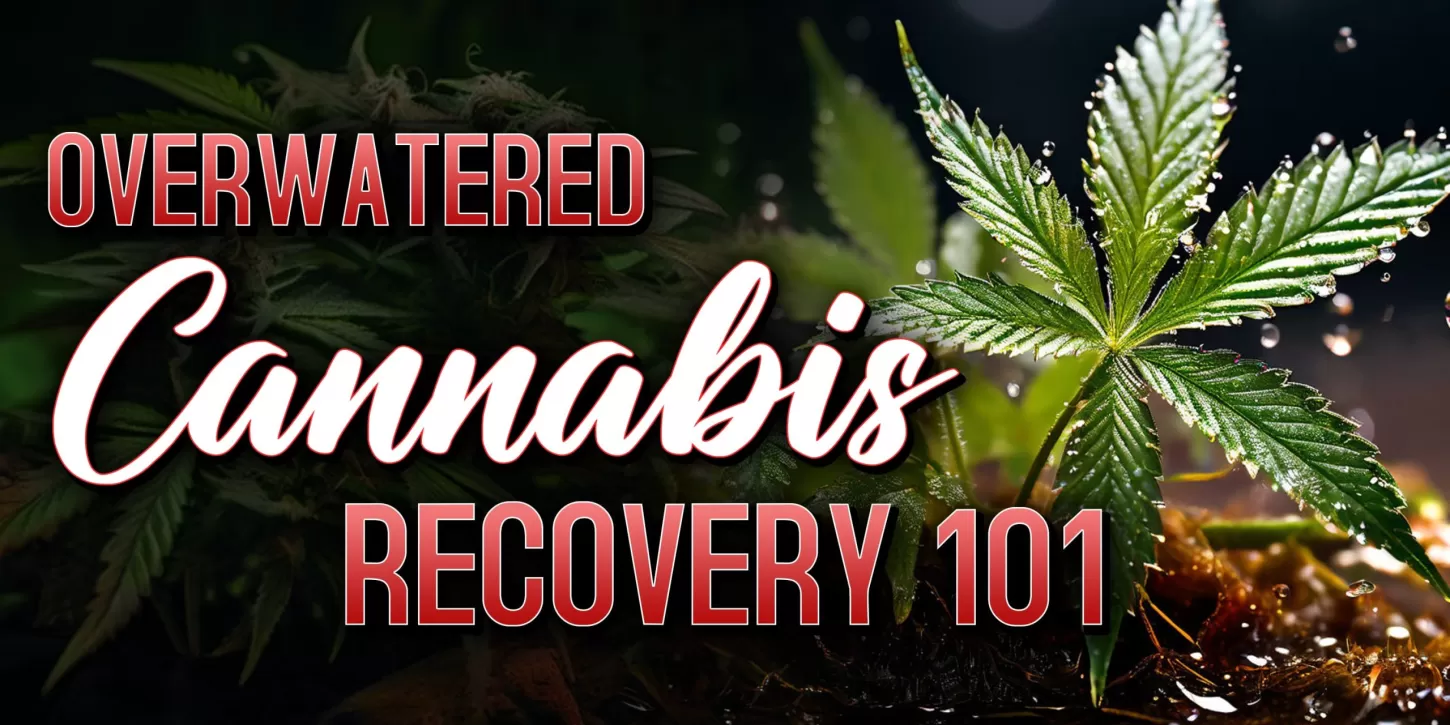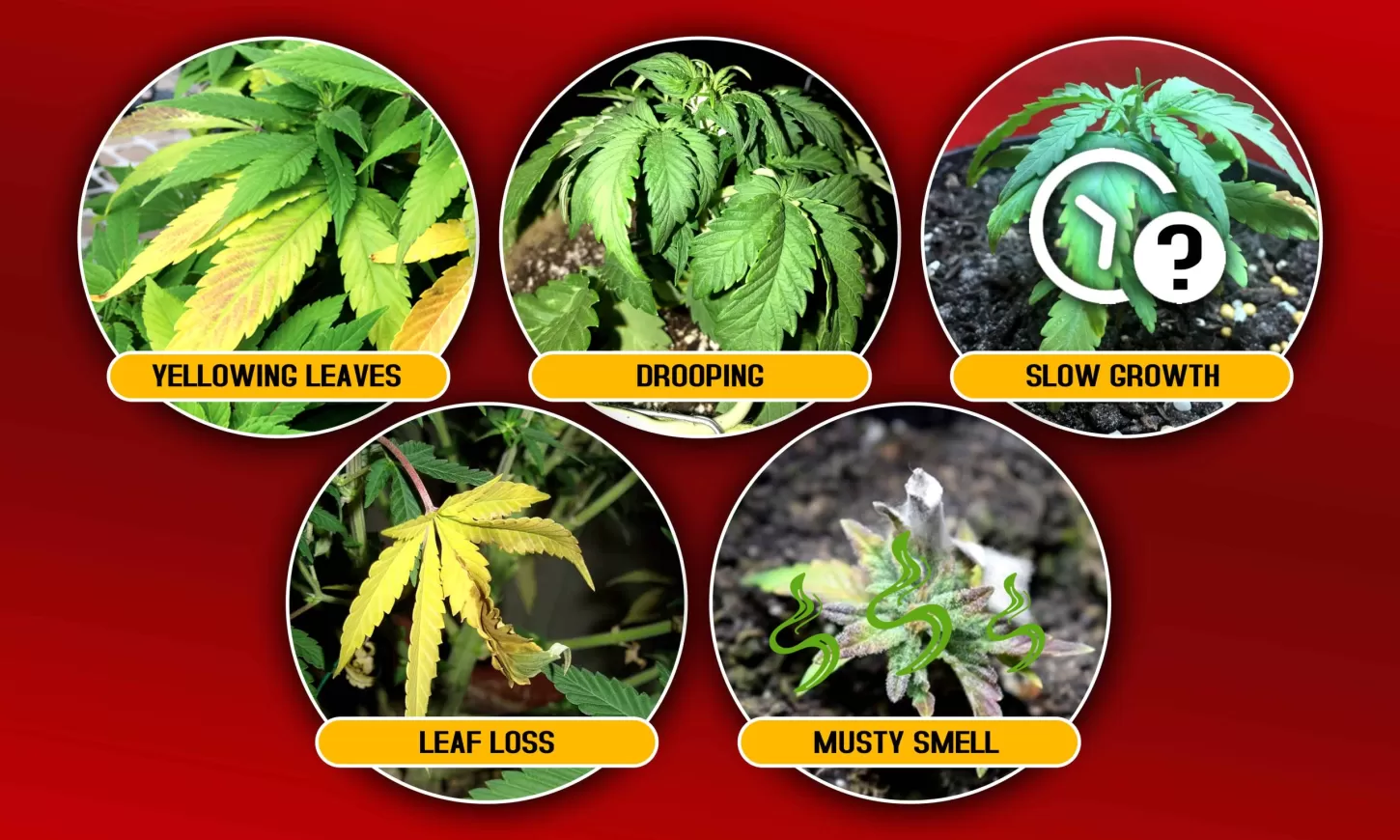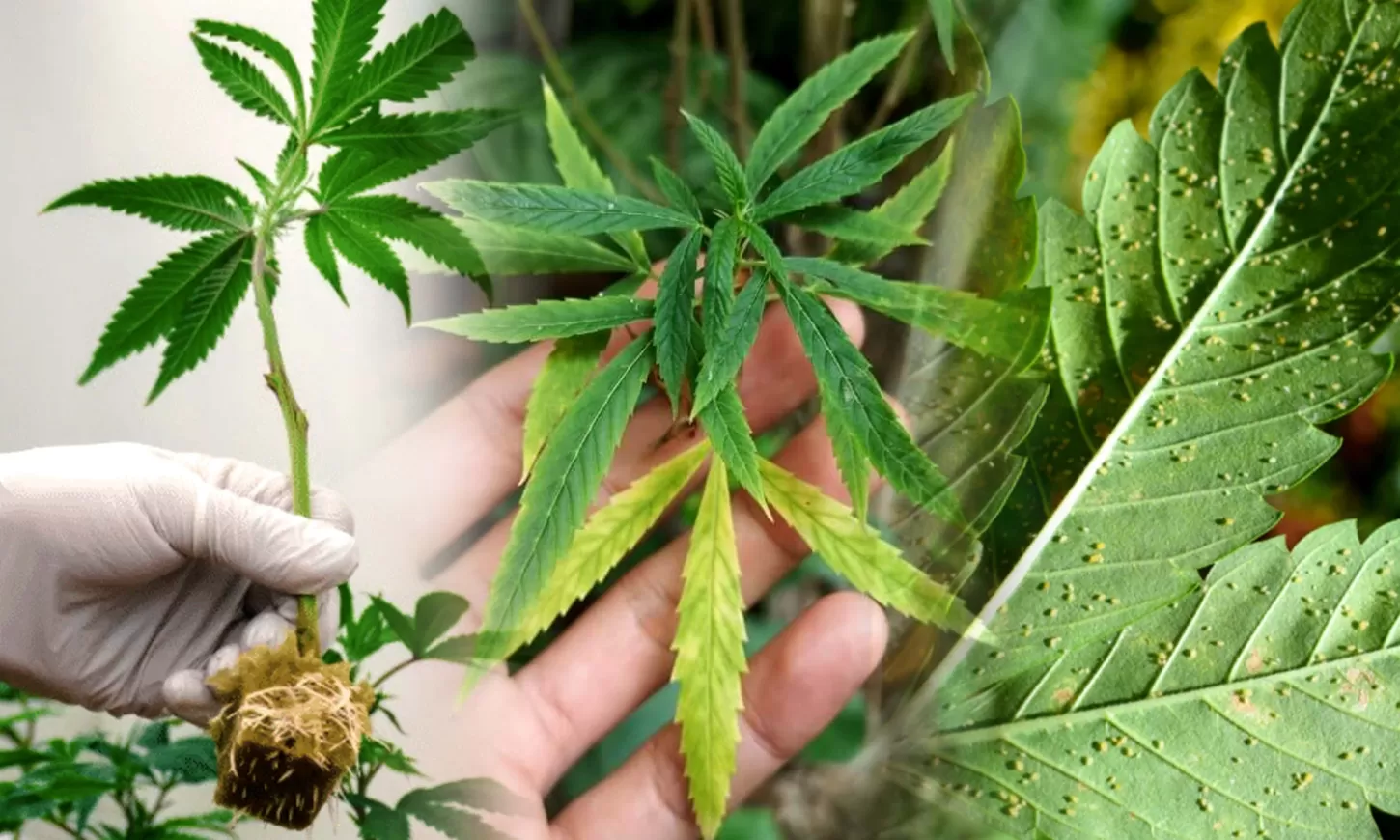Table of Contents
ToggleOverwatered cannabis happens a lot with new and experienced cannabis growers. It’s when plants get more water than they need and can’t use it, which makes their roots drown and causes problems for the whole plant. But don’t worry if this happens to you. With the right care, you can help your overwatered cannabis plants get better. In this guide, we’ll look at good ways to help your plants recover from overwatering so they can grow well again.
What is Overwatering?
Overwatering happens when cannabis plants get too much water, making the soil too wet and stopping the roots from getting enough oxygen. This extra water stops the roots from breathing properly, which can suffocate them.
Overwatered Cannabis Plants Signs
- Yellowing Leaves: Leaves turning yellow is a common sign of overwatering, starting at the bottom and moving up.
- Drooping: Overwatered plants often have droopy leaves because the extra water makes them heavy.
- Slow Growth: Too much water can slow down how fast cannabis plants grow.
- Leaf Loss: If it’s really bad, overwatered plants might start losing leaves because the roots can’t support them anymore.
- Musty Smell: The soil might start to smell musty or sour, showing there’s too much water and not enough drainage.
Effects of Overwatered Weed Plants
- Root Rot: Too much water for too long can make the roots start to rot, which stops the plant from taking in water and nutrients.
- Nutrient Problems: Overwatering messes with the balance of nutrients in the soil and how the roots take them in. This can cause things like yellow leaves and slow growth.
- More Pests and Diseases: Plants that are overwatered are easier targets for bugs and diseases. The plant is weak, and there’s too much moisture for pests and germs to thrive.
Assessing Plant Damage
- Checking Soil Moisture: Using a moisture meter or simply feeling the soil’s moisture level with your fingers allows you to gauge whether the soil is waterlogged. Additionally, observing drainage patterns and the appearance of the soil surface provides valuable insights into soil saturation.
- Inspecting Roots: Carefully uprooting the plant and examining its roots is essential for assessing the extent of damage. Healthy roots appear white or light brown, while overwatered roots may appear brown, slimy, or mushy.
- Assessing Leaf Health: Aside from observing visible symptoms like yellowing or drooping leaves, assessing leaf health involves examining the overall vigor of the plant. Healthy leaves are turgid and vibrant, while overwatered plants may exhibit limp or discolored foliage.
How to Fix Overwatered Cannabis
1. Adjust Watering Schedule
Developing a watering schedule based on the plant’s needs and environmental conditions is crucial for preventing overwatering. Implementing a “dry-down” approach, where you allow the soil to partially dry out between waterings, promotes healthier root growth and prevents waterlogging.
2. Improve Drainage
Enhancing soil drainage is imperative for preventing future instances of overwatering. Mixing perlite or coarse sand into the soil improves aeration and water infiltration, reducing the risk of waterlogged soil.
3. Prune Affected Areas
Pruning yellow or wilted leaves not only enhances the plant’s appearance but also redirects its energy towards new growth. Similarly, trimming damaged roots eliminates disease vectors and stimulates the development of healthy root tissue.
4. Increase Air Circulation
Proper airflow around the plants helps to evaporate excess moisture from the leaves and soil surface, reducing humidity levels and preventing fungal diseases. Positioning oscillating fans strategically within the grow space ensures uniform air distribution and minimizes stagnant air pockets.
5. Adjust Environmental Conditions
Maintaining optimal environmental conditions is crucial for facilitating plant recovery. Providing adequate lighting, maintaining moderate temperatures, and controlling humidity levels create an environment conducive to plant growth while minimizing stressors.
6. Use Organic Remedies
Incorporating organic remedies such as compost tea, beneficial microbes, or microbial inoculants into the soil promotes soil health and suppresses pathogenic organisms. These natural alternatives to chemical fungicides enhance plant resilience and support overall ecosystem balance.
FAQs
Q: How long does it take for an overwatered cannabis plant to recover?
A: The recovery time varies depending on the severity of the overwatering and the plant’s resilience. In mild cases, recovery may occur within a few days to a week, while more severe cases may take several weeks.
Q: Can I save my overwatered cannabis plant if it has root rot?
A: While root rot is a serious condition, it’s possible to save your plant with prompt action. Trim away affected roots, repot in fresh soil, and adjust your watering practices to prevent further damage.
Q: Should I flush my overwatered cannabis plant with water?
A: Flushing can help remove excess salts and nutrients from the soil, but it should be done carefully to avoid exacerbating the overwatering problem. Only flush if you suspect nutrient buildup and monitor the plant closely afterward.
Q: Is it possible to overwater cannabis plants grown hydroponically?
A: Yes, overwatering can still occur in hydroponic systems if the roots are constantly submerged in water or if the nutrient solution is not properly oxygenated. Monitor the water level and ensure adequate aeration to prevent overwatering.
Q: Can I use a dehumidifier to reduce humidity levels for overwatered plants?
A: Yes, a dehumidifier can help lower humidity levels in your grow space, reducing the risk of mold and mildew growth. However, be cautious not to over-dry the air, as cannabis plants also require some level of humidity for optimal growth.
Q: Should I fertilize my overwatered cannabis plant during recovery?
A: It’s best to avoid fertilizing your plant until it shows signs of improvement. Overwatered plants are already stressed, and additional nutrients may further exacerbate the problem. Focus on providing proper care and allowing the plant to recover naturally.




















